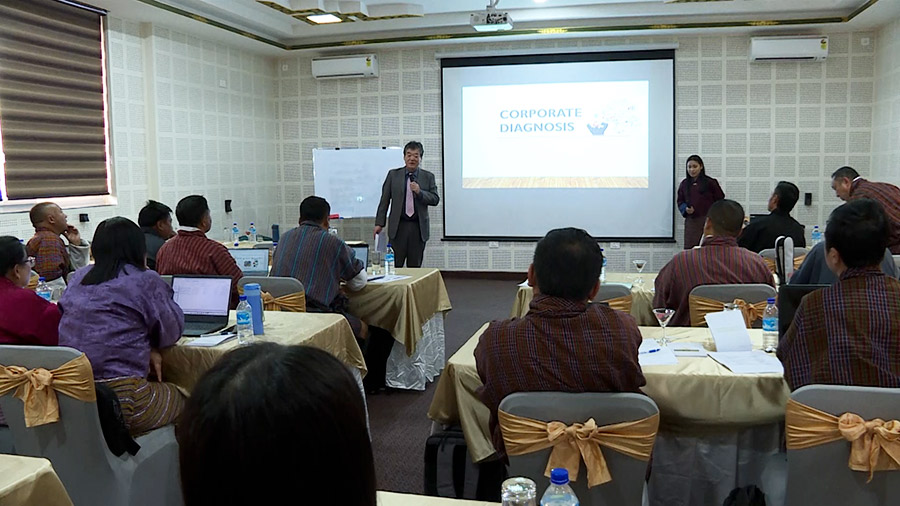
Kaizen, a Japanese philosophy emphasising continuous improvement in processes and workflows is being introduced in Bhutan to change the operational landscape of the State-Owned Enterprises or SOEs under the finance ministry. For this, a two-day workshop was held in the capital for various SOE officials. The workshop, facilitated by the Japan International Corporation Agency, JICA concluded yesterday.
Kaizen is a Japanese business philosophy that began after World War II. Toyota, an automotive manufacturing company, first implemented it.
The JICA experts said that it was implemented to improve everyday operations, productivity, and efficiency at the workplace.
Similarly, the Ministry of Finance proposed JICA to support the implementation of kaizen principles to improve the deteriorating financial positions of some SOEs.
“Kaizen is believed to improve the issues of SOEs at present. So, after the completion of our project, we believe that it will contribute to the improvement in productivity and cost to efficiency will be realised through Kaizen,” said Masashi Takano, Japanese Expert, JICA.
During the two-day workshop, the Japanese experts explained the contents of Kaizen that are considered effective SOE reform.
Finance and marketing from a Kaizen perspective were also discussed through real-life examples, interactive sessions, and case studies.
“Kaizen is the continuous improvement that is the principal like PDCA: Plan, Do, Check and Action that we need to apply in organisations such as FCBL and other SOEs. So, it is basically to eliminate the waste and improve the efficiency, effectiveness and the economic condition of the organisation,” said Chime Tshewang, the General Manager of the Food Corporation of Bhutan.
Moreover, participants shared the expected possible outcomes after adopting Kaizen principles at their workplaces.
“By implementing the concept of Kaizen, we will improve the productivity and efficiency in the organisations and we learned how it improves the quality of work and service level after attending the training for two days,” said Karma Choden, an HR Assistant with Bhutan Livestock Development Corporation.
“For example, they taught us starting from how to maintain our files. This is mainly to minimise time wasting. It teaches how to perform more in a limited time. So, after going back to our company, I think it can be implemented,” said Tshering Dorji, the General Manager of Green Bhutan Corporation.
The participants said the philosophy is mainly to change the mindsets of people and plan to implement it by coming up with a new set of SoPs in their organisation.
The Japanese team will visit again around September this year to review the implementation of the philosophy and the progress made by the selected SOEs.
Devika Pradhan
Edited by Phub Gyem








